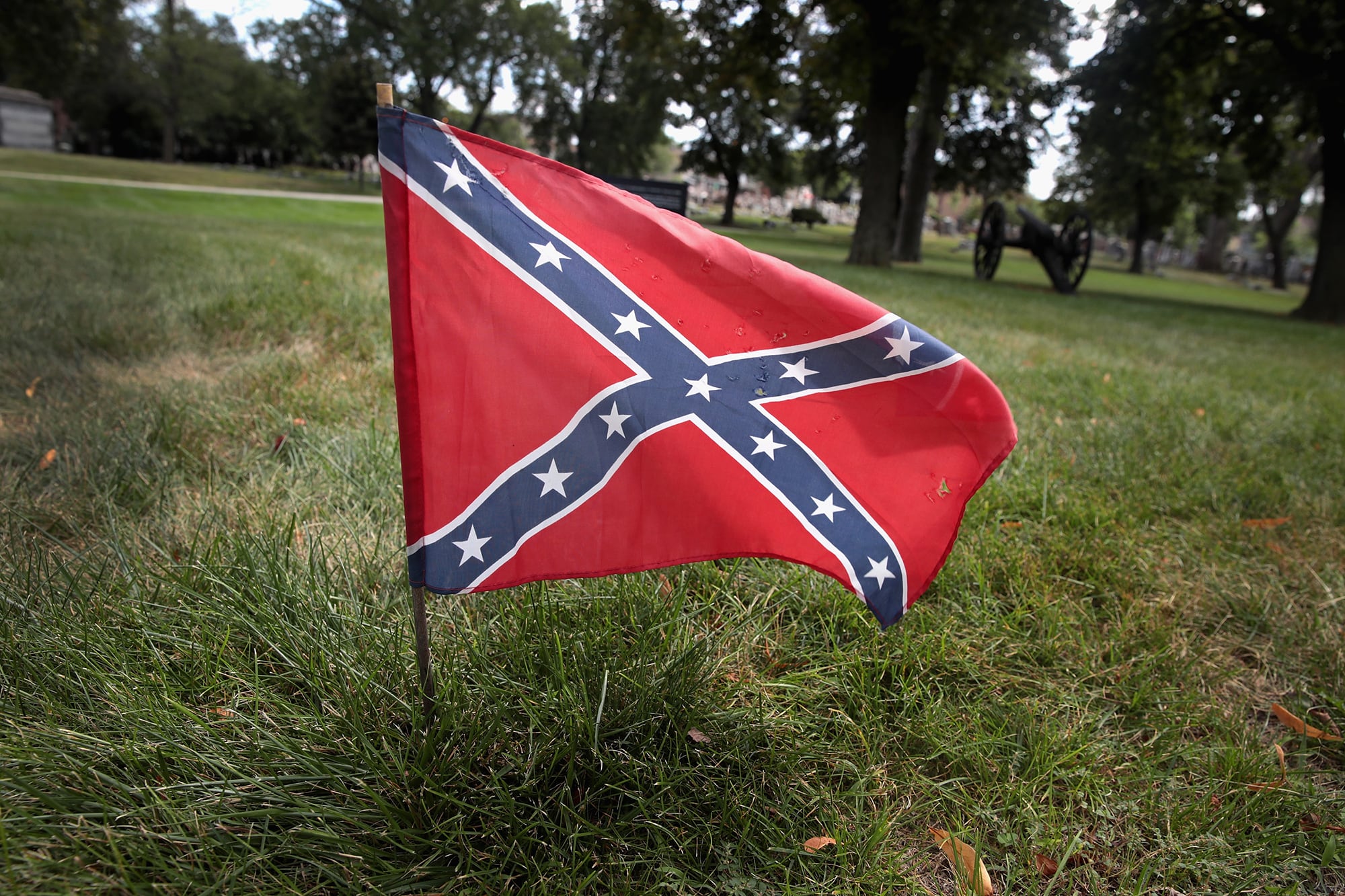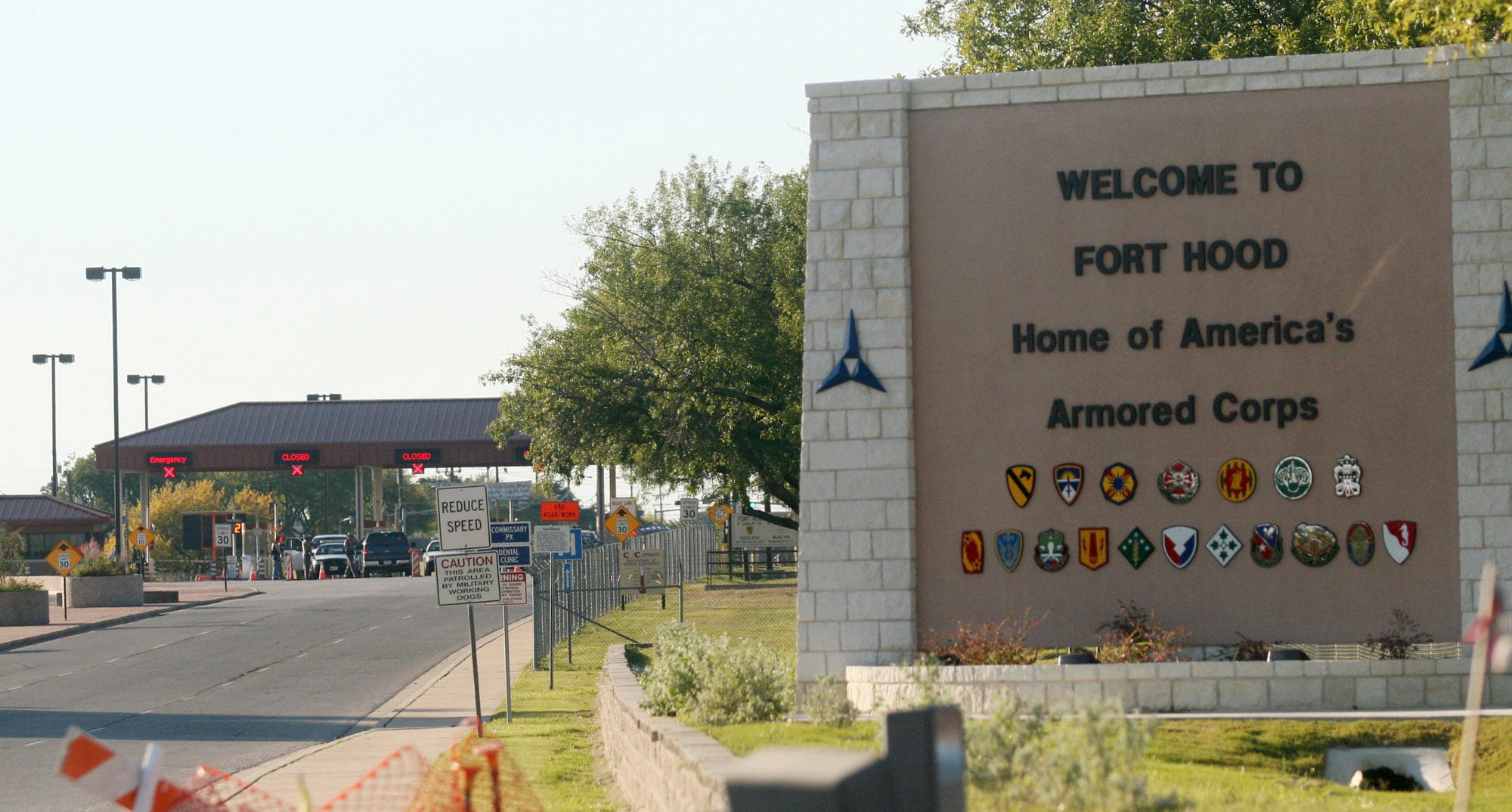Defense officials would be forced to rename military bases honoring Confederate leaders under a measure passed by a House panel Wednesday, defying a veto threat issued by President Donald Trump just a few hours earlier.
The move follows a similar legislative plan by Senate lawmakers last month, and indicates broad support in Congress to mandate changes of at least 10 well-known military installations in coming years.
They include Fort Bragg in North Carolina, Fort Hood in Texas, and Fort Benning in Georgia, all named for Confederate Army generals. Other buildings and locations at other military installations also bear the names of prominent Confederate figures.
RELATED

The House provision, approved by a 33-23 vote largely along party lines for inclusion in the annual defense authorization act, would require the bases be renamed within a year of the final bill passage. Iraq War veteran Rep. Anthony Brown, D-Md., sponsored the legislation and said the changes are needed to end the “pain and suffering” still caused by the memory of the Confederacy.
“These are officers that led the Confederacy in rebellion to our country,” he said. “They represented a defense of keeping slavery in our union.”
Defenders have argued that while the names have an origin with the Civil War, the broader history of the sites now outweighs those references. That includes Trump, who in recent weeks has repeatedly called for the “historic” base names to remain unchanged.
Late Tuesday night, Trump took to social media to threaten a veto of the defense authorization bill if it includes language “which will lead to the renaming (plus other bad things!) of Fort Bragg, Fort Robert E. Lee, and many other Military Bases from which we won Two World Wars, is in the Bill!”
The authorization bill contains language guaranteeing the annual military pay raise, outlining a host of equipment purchase priorities and hundreds of defense policy reforms.
It has passed for 59 consecutive years, making it one of the rare points of consistent bipartisan agreement on Capitol Hill, but is often the subject of veto threats by presidents in the early stages of its crafting.
House committee Republicans pushed for changes in the amendment, to include a longer timeline for changes and the possibility that community boards could opt not to change the names. But that provision was defeated by the Democratic majority.
“We have to come to terms with our history, why that was done and what that represents to a lot of people,” said Committee Chairman Adam Smith, D-Wash. “If they were, in fact, named for people who participated in the rebellion against the United States, this should not be. These should be changed.”
RELATED

Senate Republicans are expected to offer changes to language related to the name changes in coming days, as the chamber finalizes work on their draft of the authorization bill.
But Senate Minority Leader Chuck Schumer, D-N.Y., dismissed the president’s veto threat as “typical bluster” and not a serious danger to critical military legislation.
“The NDAA will pass and we will scrub from our military bases the names of men who fought for the Confederacy and took up arms against our country,” he said.
Ahead of the base renaming vote, the House committee passed without objection legislation to ban displays of the Confederate flag at all military locations, except for museums and on gravestones. The Senate version of the legislation does not have a similar ban.
Leo covers Congress, Veterans Affairs and the White House for Military Times. He has covered Washington, D.C. since 2004, focusing on military personnel and veterans policies. His work has earned numerous honors, including a 2009 Polk award, a 2010 National Headliner Award, the IAVA Leadership in Journalism award and the VFW News Media award.




